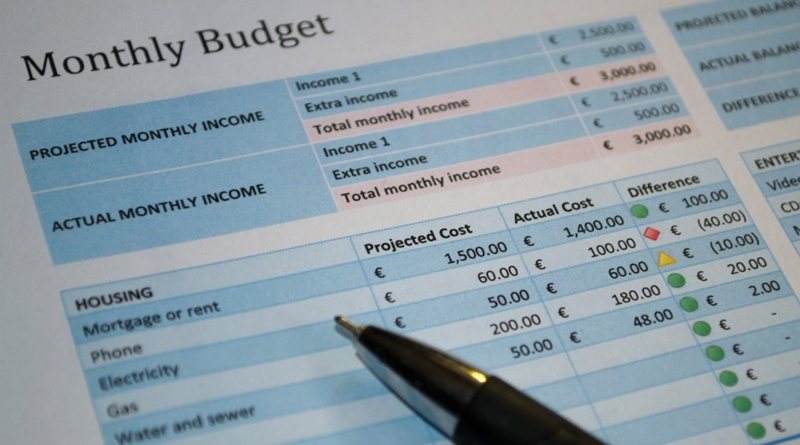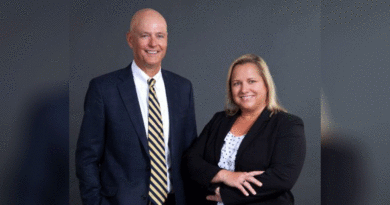Preparing a Budget That Makes Sense for Your Annual Meeting
You’ve balanced your numbers, convinced your vendors to give you a price break, planned to install some energy efficient appliances and are ready to proudly showcase all of this to your board at the next annual meeting, but it doesn’t go as well as planned. What went wrong? Maybe it only made sense to you and the internal team, all the operations and accountants and number focused people who just GET it. But most of the board just didn’t. You’ve balanced your numbers, convinced your vendors to give you a price break, planned to install some energy efficient appliances and are ready to proudly showcase all of this to your board at the next annual meeting, but it doesn’t go as well as planned. What went wrong? Maybe it only made sense to you and the internal team, all the operations and accountants and number focused people who just GET it. But most of the board just didn’t.
When dealing with boards of directors who don’t work full-time at the timeshare resort, you don’t just have to prepare a balanced budget, you also have to make that budget make sense and then showcase it that way. If your budget doesn’t easily make sense you’ll be met with longer meetings, debates, potential disapproval, confused board members and the probability that your hard work won’t be implemented.
This month I spoke with Will Potter, VP of Operations at SPM Resorts, who has worked extensively on budgets and board meetings, to get some tips about preparing a budget that makes sense and presenting that budget to your board and ultimately your ownership.
First of all, to make a logical budget you can’t just sit down and start plugging in numbers. It’s a year-long process. Throughout the year you should be:
- Looking at contracts and knowing the renewal dates to renegotiate and noting any built in increases in costs.
- Make constant notes throughout the year so you know where mistakes or oversights were made; saying the electric went up 15% is too vague, but pinpointing that 90% of this increase was in the month of July helps you make changes and accurate predictions.
- Communicating once a month with your board by sending those reports and updates with commentary that they can quickly and easily understand.
- Always have big projects on your mind; knowing that these are coming up allows for complete planning with more accurate quotes. All major capital projects should be budgeted with a 5%-10% contingency factor, depending on the size of the specific project.
The Revenue Factor
Typically the first thing discussed on the topic of budgets is how to cut costs and spend efficiently, but really the first place to begin should be the revenue.
“When budgeting, it’s important to keep in mind that these timeshare resorts are non-profit entities so you are aiming for a balanced budget where revenues meet expenses after reserve funding,” said Potter. “Working in tandem with your sales, marketing, and revenue departments helps you know their realistic goals and you letting them know about upcoming projects helps them also set their goals at an attainable level.
Resorts should be looking at their delinquency factor and knowing ahead of time just how much inventory will be available for earning revenue. You can’t count on this revenue being consistent from year to year. Major renovations could wipe out pockets of inventory for months at a time or an increasing number of delinquencies could create higher rental opportunities from year-to-year.
“We like to always be looking for extra ways to create revenue at our resorts,” said Potter. “From creating and selling merchandise to on-site activities, or having snack stands are a few ways to entertain your guests and also attract future owners or rental guests. Everyone recognizes that maintenance fees will always be the main lifeblood of the resorts but by getting creative and efficient you can fuel extra revenue streams to help offset any delinquent owners while also enhancing the guest’s experience.”
Pulling It All Together
Once your annual meeting comes and you’re ready to present your annual budget it’s important to pull it all together properly.
According to Potter, the biggest thing to think about is what if it was YOU getting that bill? Is it worth keeping and paying? Is the joy of ownership strong enough to sign, stamp and send that check off to the vacation ownership resort? Owners like to see minimal increases or no increases but also expect the quality to remain and improvements to continue. It’s not a success to not raise maintenance fees for 15 years if the property is falling apart because of it. That just puts you in a situation in which a special assessment will be necessary to cover what minimal increases could have covered during that 15 year period.
So, as you keep these points in mind at all times make sure your presentation to the owners is organized with a good, clean summary. Have someone at your management company or resort who was not involved in the research and planning stages review the presentation. That’s a good way to test if it is clear, concise, informative and to the point. Those who are closest to the budget project run the risk of getting too close and too in-depth and end up ineffectively communicating it thoroughly.
Potter’s overall advice when presenting your budget – use common sense and keep it simple. You’ve got to know what’s coming in before you can determine what’s going out. Make those pieces clearly add up and you should have a successful budget meeting.



